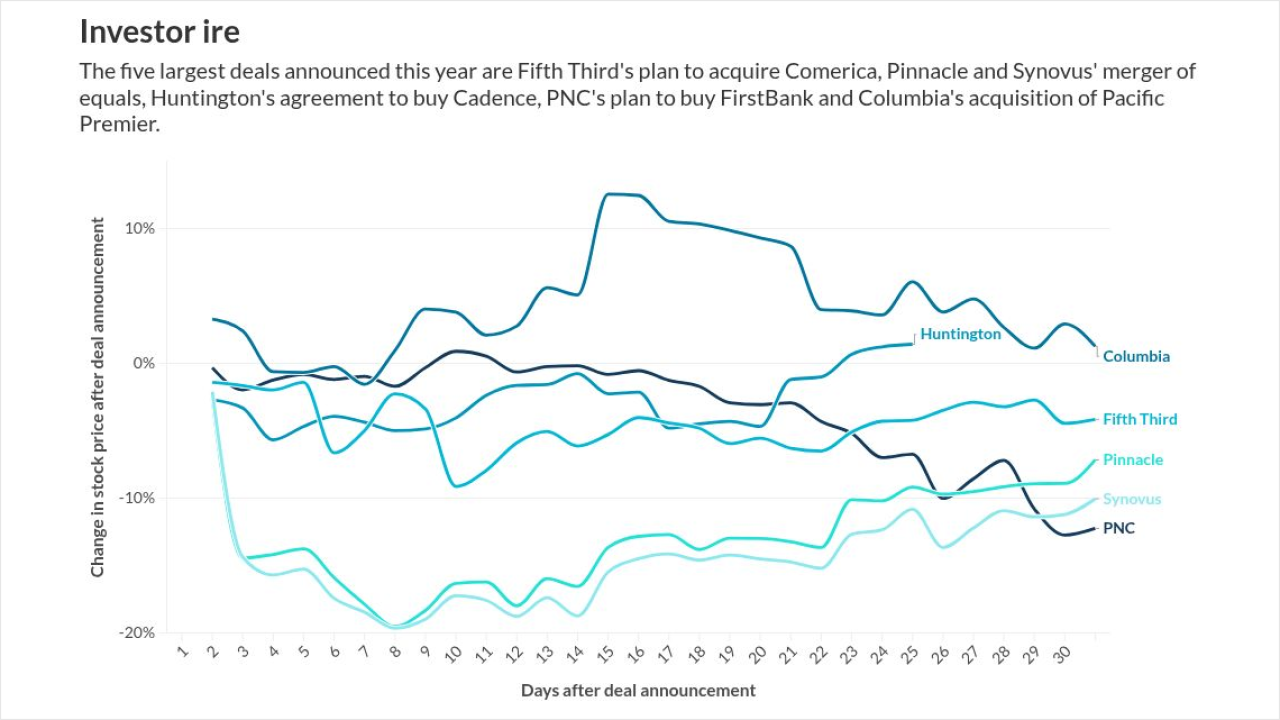Community banks are lining up behind a proposal that would give them a tax break on interest they earn on farmland loans, arguing that they need the break to better compete against government-backed lenders and make credit more widely available in rural areas.
After years of stalling in Congress, a bill known as the Enhancing Credit Opportunities for Rural America Act was reintroduced by a pair of House lawmakers, Reps. Ron Kind, D-Wis., and Randy Feenstra, R-Iowa, in the spring. A companion bill was submitted in the Senate Wednesday by a group of five Republicans in farm country: Sens. Jerry Moran and Roger Marshall of Kansas; Mike Rounds of South Dakota; John Boozman of Arkansas; and Kevin Cramer of North Dakota.

The measure, first introduced in 2017, is meant to create more financing options and reduce borrowing costs for farmland and homes in far-flung areas that have limited access to credit from commercial banks. Supporters say there is more urgency to get the bill passed this year because rural areas have been hit hard in recent years, first by falling crop prices and the COVID-19 pandemic.
If the bill is passed, it would be a major win for small banks that have argued for years that they’ve been competing at a disadvantage against Farm Credit System lenders that enjoy similar tax exemptions.
"This important legislation will help sustain and revive rural economies affected by the COVID-19 pandemic while providing community bank lenders with benefits they can pass on to customers, similar to other rural credit providers,” Independent Community Bankers of America President and CEO Rebeca Romero Rainey said in a statement Thursday.
Bankers say the tax exemption would allow them to lower interest rates on loans, thus lowering costs for borrowers. The Enhancing Credit Opportunities for Rural America Act could reduce borrowing costs for farmland loans by up to 21%, according to the American Bankers Association.
Those without farms could benefit too as the proposal would provide the tax exemption on loans for single-family homes in towns with less than 2,500 people as well.
Credit in these communities has been on the decline as
The $101.6 billion in total loans backed by farmlands at commercial banks in the first quarter declined by 2.5% from last year to the lowest level since 2018, FDIC data shows.
Massive stimulus payments and separate bailouts from the U.S. Department of Agriculture that covered the drop in crop prices helped many farmers avoid bankruptcy in 2020. Still, 560 farms filed for bankruptcy last year, down from 599 the year before but still well above recent historic norms, according to U.S. courts data.
Wisconsin, in particular, leads all states in farm bankruptcies with an average of two dairy farms closing every day, according to Rep. Kind’s office.
“I’ve heard from many Wisconsin lenders and farmers about a credit crunch for agricultural and rural loans, which has only worsened as the COVID-19 crisis continues,” Kind said in a statement in March when the bill was reintroduced.
The bill “is all about helping ag borrowers under stress, which is something lawmakers on both sides of the aisle have long supported,” James Ballentine, executive vice president of congressional relations and political affairs at the American Bankers Association, said in an email.
The bill's sponsors are working to gain bipartisan support in the Senate as committee schedules for the year are still being ironed out. A question that has come up is how to be sure that lenders would pass on their tax savings to the borrower in the form of lower interest rates, a congressional staffer said.
In conversations with lawmakers, local community banks have expressed a genuine desire to pass the savings along, the staffer said, but it's unclear if some legal wording could be needed to secure enough support. Though there is plenty of push from the industry behind it.
“We’re optimistic about the bill’s prospects this Congress,” Ballentine said.





